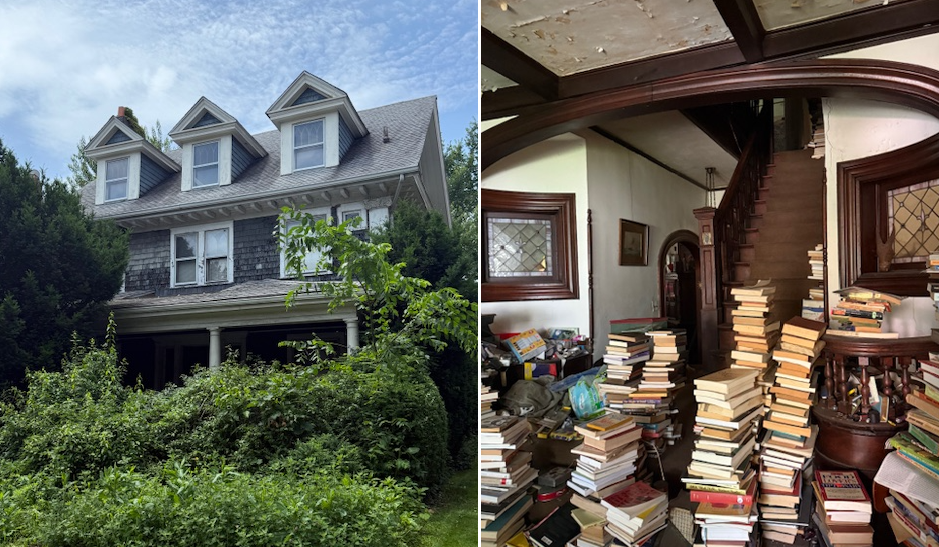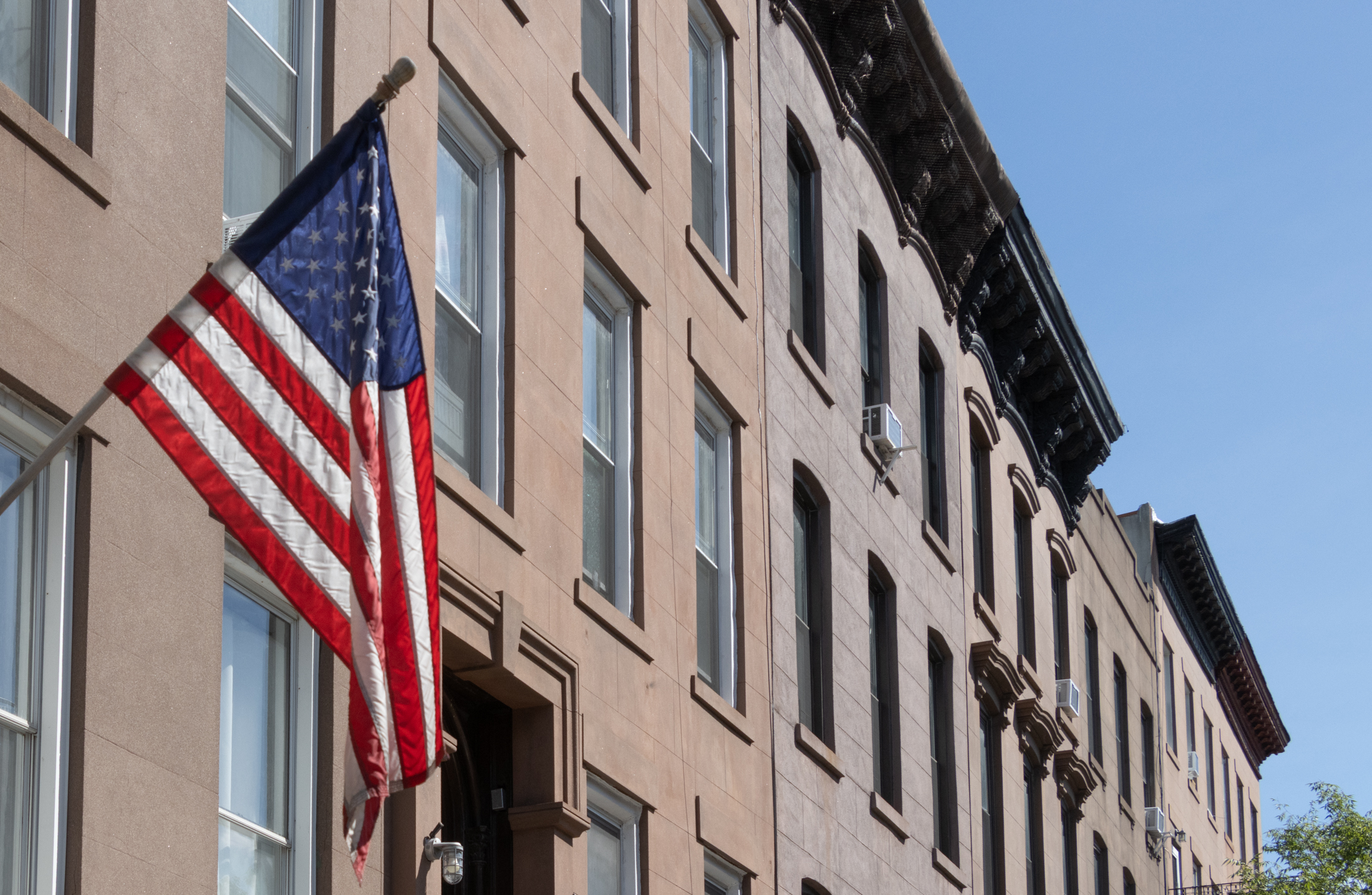Quote of the Day
I know I’m going to get jumped on by the usual financial pundits here, but as someone who doesn’t even know what all of those strange court reporter type keyboard terminals on the stock market floor are for, let alone understand the intricate maneuvering of market forces, let me just say this – isn’t this…
![]() I know I’m going to get jumped on by the usual financial pundits here, but as someone who doesn’t even know what all of those strange court reporter type keyboard terminals on the stock market floor are for, let alone understand the intricate maneuvering of market forces, let me just say this – isn’t this all a cyclical (albeit harsh) period of correction? As an educated and halfway intelligent and informed person, whose only dealings with the market are in the form of my miniscule and shrinking 401K, I can see why where we are, and understand the fear, but it only makes sense that what rises must eventually fall.
I know I’m going to get jumped on by the usual financial pundits here, but as someone who doesn’t even know what all of those strange court reporter type keyboard terminals on the stock market floor are for, let alone understand the intricate maneuvering of market forces, let me just say this – isn’t this all a cyclical (albeit harsh) period of correction? As an educated and halfway intelligent and informed person, whose only dealings with the market are in the form of my miniscule and shrinking 401K, I can see why where we are, and understand the fear, but it only makes sense that what rises must eventually fall.
— by Montrose Morris in Dead Cat Bounce or the Bottom?





Sorry, that was supposed to be paranoid right-wing “nuts,” not “buts.”
And while I’m here, another way to think of this is to consider the “tragedy of the commons.” In a nutshell:
There’s a small village, with 50 residents, which is shaded by 50 trees. Everyone enjoys the trees and the shade they provide for the whole village. One day, for whatever reason, the trees take one some specific value above and apart from the general value of their shade. Say a foreigner comes in and asks to purchase the sap of the trees, which is valuable where he comes from.
Who gets to sell the sap? This is not a hippie commune, there’s money to be made here. The village residents start claiming trees as their own. They each take a tree and sell the sap. Some sell their tree to others, who then sell twice the sap, etc. Welcome to private property, and to capitalism.
But what if there’s a drought, and the sap all dries up? The trees become valueless again. One successful entrepeneur owns ten whole trees, but what good are they to him? Why shouldn’t the trees be “de-privatized?” Let them go back to being a communal resource until such time that they regain their sap and their value. Then, privatize them all over again!
The problem with socialism is it doesn’t allow privatization when it’s supposed to happen. As long as we do, then we don’t have to worry about the government taking equity stakes in financial companies. (…not that aspect of it, anyway.)
And, to MM: you’re mostly, but not completely right that this is a cyclical correction. Things aren’t perfectly cyclical, or the DOW never would have hit $14,000 to begin with. The economy can and does grow over time; we’re not just bouncing up and down between set boundaries.
However, what you hit on, which the financial pundits seem not to have realized, is that this is a CORRECTION. It’s one problem with all the bailout plans: everybody thinks we need to use the government to inject money and liquidity into the economy, so that there will be as much credit to go around as before, so that investments will reach their prior valuations, etc. But that’s problematic.
Fact is, there was TOO MUCH credit sloshing around last year, too much cheap money, too many leveraged investments that were too easy to leverage. That’s why real estate prices skyrocketed all over the country. RE just one example, but let’s consider it: say the Feds inject more lending ability into the mortgage industry, allowing banks to lower rates, allowing people to afford more, increasing demand, pushing prices up, etc until we’re back in the same situation that just bit us on the backside.
The same principle applies to the rest of the financial industry: we don’t want our whole economy to grind to a halt, but at the same time we don’t want to pour so much money into the pot that we go right back to where we were, only with even more foreign debt. By rights, we *should* go into a long recession. This economy needs to correct, not be propped up by taxpayer largesse. (Can we please pay for no more weekend retreats costing multiple times my annual salary for the misfeasant executives who got us into this mess??)
John McCain did sign one of those forced “I’m an air pirate” confessions without getting court-martialed, etc. in order to stop getting tortured. I find the idea that a) he didn’t take early release, in order to secure a future political career, and thus b) this refusal to avoid years of suffering makes him petty and spoiled, to be a very strange idea of what it means to be petty and spoiled. BTW Bush and Cheney and Kerry have all (each in their own way) had rather complicated relations with the Vietnam-era military, and rather successful political careers. No, character is not only about honor and patriotism, but John McCain has an awful lot of character. As I’ve said before, I do not think this alone qualifies him to be President.
And yeah, Rolling Stone – about as dependable as Fox News.
People: this is NOT Socialism. Go look up what socialism means.
This is failing companies unable to continue operating because they cannot get short-term loans. They cannot get short-term loans because those organizations handing out the loans have stopped, because the valuation of… well, of just about *everything* is suspect. Financial institutions are unwilling or unable to lend because their assets have shrunk relative to their debt and their (risky, overvalued) extant investments.
What do you do if your roof falls in and you need $100,000 to repair it immediately, but you only have $10,000 in the bank? You take out a home equity loan. You get access to enough cash to get the repairs done, and the bank gets a share of the equity in your house as collateral.
The terms are different, but banks are basically getting access to quick cash in exchange for giving the government a claim on some of their equity. Their ratio of debt to assets goes down, they are able to cover some of the risk involved in giving credit, and so they do… and then businesses can get short-term loans again, people can get car loans and mortgages again, etc. American consumers do what they do best, and in a year or two the economy is healed. Then the government divests itself of the aforementioned equity, and uses the proceeds to pay down the trillion dollars of debt it took on to buy it in the first place. Capitalism goes on its merry way.
That is NOT Socialism. Socialism involves the belief that the central government should own and control X industry, permanently.
DISCLAIMER: the above description of our economic crisis is not by an economist, and not intended to be accurate. It’s just a layman’s portrayal, quick and dirty, to help explain why America is not and will not veer into Socialism, so the paranoid right-wing buts can take a deep breath and chill the heck out.
Thanks for posting an article from Rolling Stone – a completely unbiased, apolitical, facts only source of information.
I still can’t figure out why Polemicist chose to live in Park Slope if he doesn’t like “hippies”. And, by the way, the only hippies left are the faux kids who hang out in the Haight asking for change.
The Rolling Stone piece is definitely worth reading.
I’m SnarkSlope, and I approve this message.
You’re welcome, 11217. Peace.
I found the article completely absorbing and informative (and yes sad and enraging…all were good descriptions) as well. I couldn’t stop reading it, and immediately sent it to everyone I know.
I encourage you all to do the same, should you feel so compelled. I hope a few more people wake up in the next 3 weeks. I don’t even want to think about the ramifications of a McCain/Palin Presidency. I think we have enough problems to deal with, without adding those 2 additional ones into the mix.
Thanks again for posting that article, Nokilissa.